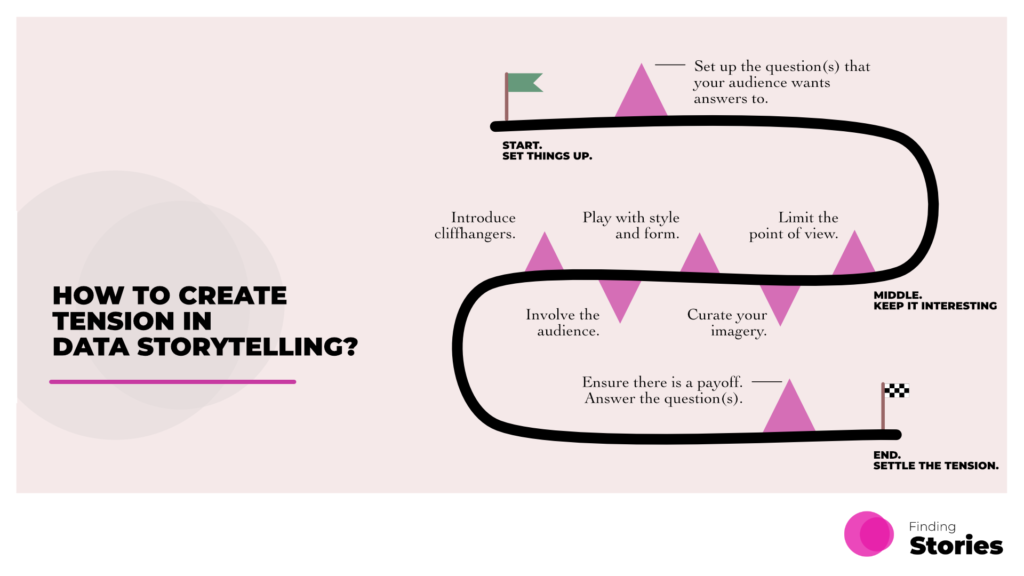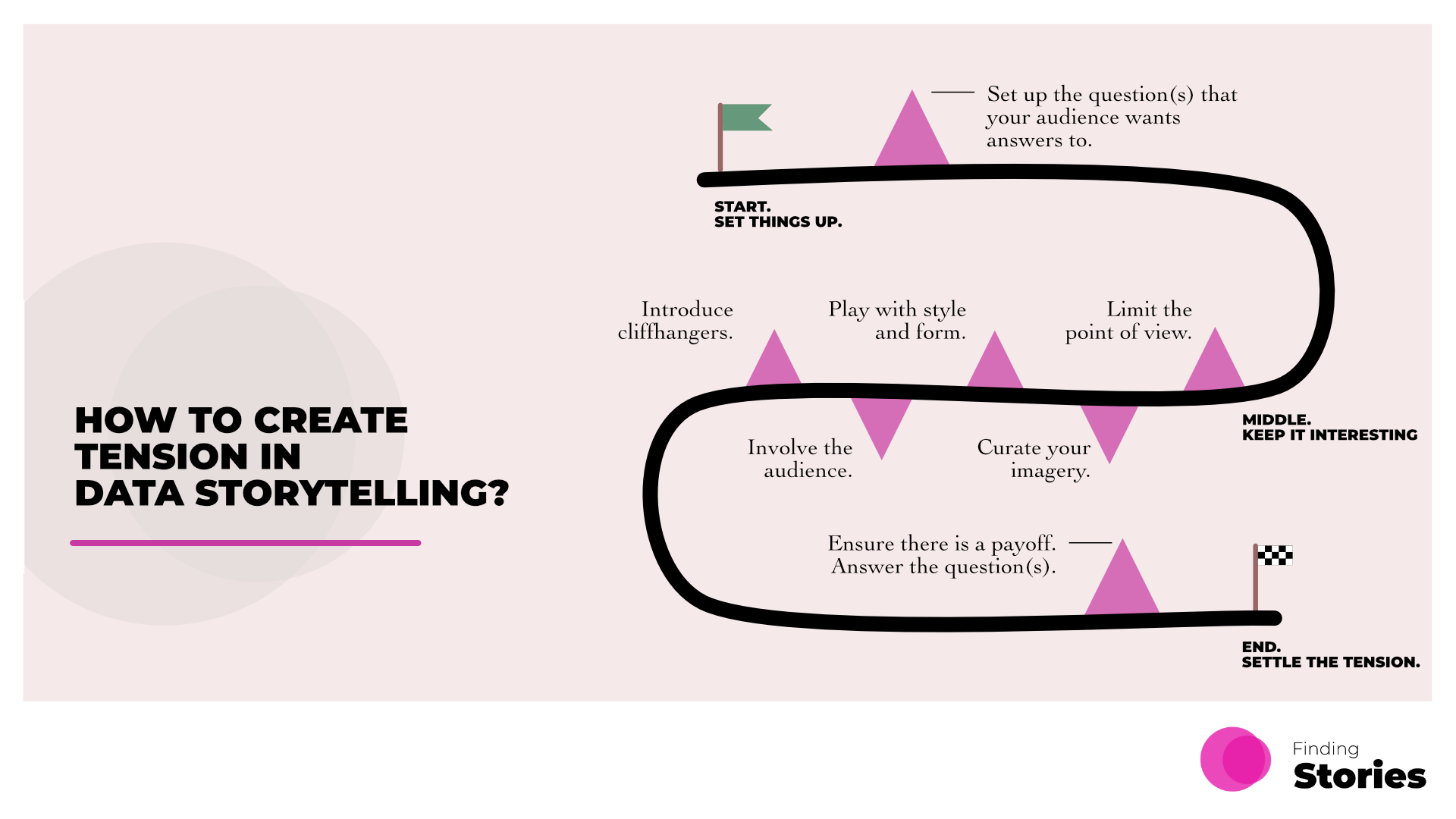
If you want to elevate the level of engagement in your next data story, start thinking more purposefully about introducing Tension as an emotional experience.
Tension is what keeps your audience engaged and interested in what happens next.
How do you do it? Well, like most stories, there’s a start, a middle and an end.
Start
Early on in your story, set up the question(s) that your audience wants answers to – perhaps giving a tease of what is to come to ramp up the expectation.
Middle
Keep your story interesting by leaning on classic storytelling ideas for creating tension and suspense. Ideas include:
Limit the Point of View
Don’t reveal everything at once. Present single sides of the story, perhaps from a certain persona / with just one source of data, and slowly increase what you share throughout. Peel that onion!
Curate your Imagery
Consider the subtle use of different colours in your slides or charts that set the mood / expectation of things to come. Examples include Green for Growth, Purple for Mystery, Blue for Trust, Red for Danger.
Play with Style and Form
Vary your pace and tone as you present. Introduce a faster pace / higher tone for excitement, urgency and action. A slower pace / lower tone for suspense, mystery and dread.
Involve the Audience
Make them have some ‘skin in the game’ by either getting them to predict what comes next, or by referring to the role they might play / benefit / suffer within your story.
Introduce Cliffhangers
Be brave in hinting at a solution / answer, but then go off on a related tangent before returning to the answer (although be careful that this doesn’t lead to frustration).
End
Ensure there is a pay off. Tension only works as a storytelling idea if it is eventually resolved. Think of it like a rubber band….too much tension and not enough ‘release’ might mean that it eventually snaps. Ensure you achieve a satisfactory and fulfilling ending to your tension filled story.
For a deeper explanation with some more examples, and to see how this sits alongside other storytelling ideas and approaches, reach out to us to discuss our ‘Write Better Data Stories’ course.
